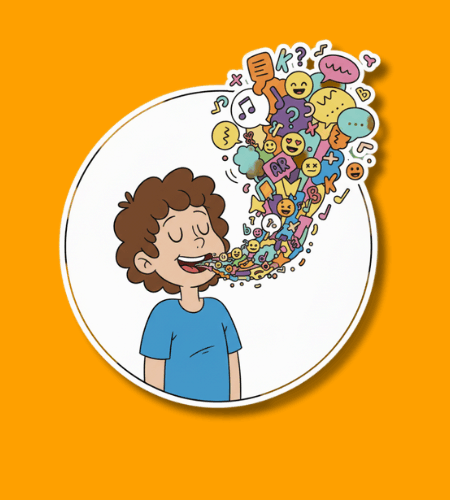Every year on October 21, people observe Babbling Day, a light‑hearted day dedicated to playful chatter, the joy of talking (or listening) and celebrating the free‑flow of words.
Table of Contents
History of Babbling Day
Babbling Day traces its roots to informal, whimsical celebrations of dialogue and speech, with the term “babbling” traditionally meaning endless, often nonsensical talk. Over time, this concept evolved into a quirky observance where the day is used to acknowledge both the loquacious among us and the simple pleasure of sound and rhythm in speech. The date of October 21 was established to give this playful idea an annual occasion to shine.
Though it doesn’t come with a formal founding document or large‑scale campaign, the holiday emerged from the notion that conversation—whether reflective, silly, or spontaneous—is an essential, often overlooked part of human connection. It invites us to honour the act of talking simply for the sake of sharing, not for agenda or outcome.
Why is Babbling Day important?
At first glance, Babbling Day might seem trivial—a chance to ramble or chatter without consequence. But when I pause, I see that it stretches a little deeper: it reminds us of humanity’s core need to express, connect, hear and be heard. In a world full of formal communication (emails, meetings, texts), this day gives permission to relax into the informal, the spontaneous, the unstructured exchange of voices.
It also shines a gentle light on how we value listening as much as speaking; when we allow babbling, we allow someone to think out loud, to try on ideas, to connect fragments of thought without pressure. Recognising that may help us become more patient, more present and more appreciative of the quiet or quirky voices around us.
- Encourages joyful, spontaneous speech rather than always “working” conversations
- Highlights that what may sound aimless can still be meaningful in building connection
- Offers a moment to relax into listening as much as talking
- Affirms that even the “small talk” has value in human relationships
- Invites us to remember that communication is not just function—it’s a kind of play
How to Celebrate Babbling Day
You don’t have to organise an event—celebrating Babbling Day can be as simple as letting yourself (or someone you know) just talk for a while. Take half an hour to call a friend and let the conversation roam where it wants to—no agenda, no corrections, no rush. If you prefer quiet, go sit somewhere peaceful, listen to a flowing stream or watch leaves rustle and let your mind wander.
You might also try a playful activity: pull out a notebook and write down the first silly sentence that comes to mind, then build on it. Or invite a child (or a grown‑up) to yap in nonsense for two minutes and then see what hidden idea might be hiding underneath. It’s not about being perfect—it’s about letting the voice have fun.
- Pick up the phone and let someone know you’re just calling to chat.
- Sit by a window or a brook, listen to nature’s murmurs, and reflect on how speech shows up in quiet.
- Write a silly sentence, then let it evolve into a short story or poem.
- Invite someone else to ramble on an idea and then ask them what they discovered mid‑babble.
- Turn off your phone’s agenda mode and simply let a conversation co‑exist with silence.
Babbling Day Dates Table
| Year | Date | Day |
|---|---|---|
| 2026 | October 21 | Wednesday |
| 2027 | October 21 | Thursday |
| 2028 | October 21 | Saturday |
| 2029 | October 21 | Sunday |
| 2030 | October 21 | Monday |
Subscribe to our newsletter and never miss a holiday again!

